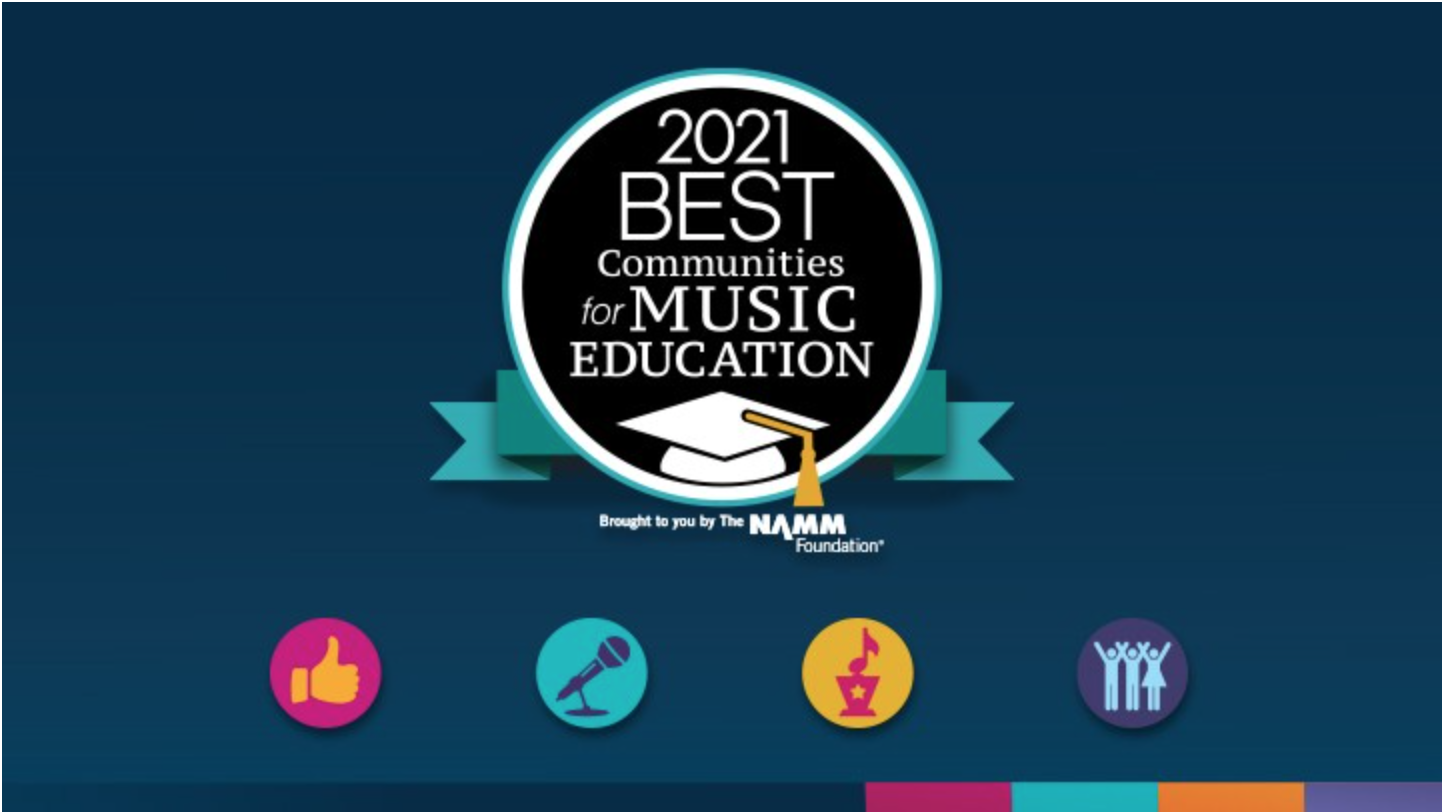By CUSD Insider staff
A Carlsbad-based nonprofit has awarded the Capistrano Unified School District with its 2021 Best Communities in Music Education (BCME) award.
For 22 years, the NAMM Foundation has recognized schools and districts based on their funding, staffing of highly qualified teachers, commitment to standards and access to music instruction.
“In past years, a BCME designation has helped raise local awareness of quality music programs from coast to coast,” said Sharon Bryant, senior project manager, public affairs with NAMM. “Earning the designation has assisted communities in securing funds for music programs threatened by budget cuts and acts as a source of community pride.”
To receive the BCME, Capistrano Unified answered detailed questions. The responses were verified with school officials and reviewed by the Music Research Institute at the University of Kansas.
“There were also additional questions regarding how our music staff dealt with the limitations caused by the pandemic,” said music teacher Kory Wentzel, who is also the administrative assistant principal (ATAP) for the district’s elementary music department. “For example, one question was to share our general strategies, activities and approaches during (the pandemic). I answered that we tried to keep our program as ‘normal as possible’ while adapting to our current times.”
“Our district at that time was providing online, live and hybrid instruction, so our music teachers have had to be flexible and modify their lesson planning to incorporate all these formats,” he said.
Wentzel, who said this isn’t the first time Capistrano Unified has received the honor, called the award an accomplishment for the district’s music education, which is fully funded from kindergarten through 12th grade. Nineteen districts in California were also honored this year with BCMEs.
“Our elementary block program has been a blueprint for other districts,” Wentzel added. “We have been fortunate to have such administrative support to keep it going strong. It is also a testament to our staff of music teachers who, given the limitations of the pandemic, have been able to continue to provide a well-rounded music program to all of our students.”
Wentzel noted how music education poses many benefits, such as social skills, higher reading scores and higher graduation rates.
“Significantly, listening skills are [even] closely tied to the ability to perceive speech in a noisy background, pay attention and keep sounds in memory,” he added. “Later in life, individuals who took music lessons as children show stronger neural processing of sound; young adults and even older adults who have not played an instrument for up to 50 years show enhanced neural processing compared to their peers.”

